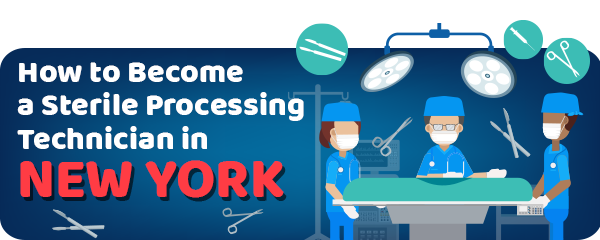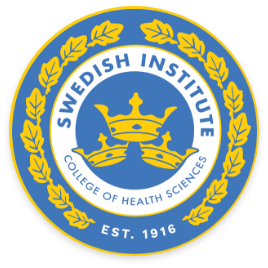The healthcare industry offers an excellent working environment.
Jobs in this field generally provide more stability compared to other professions.
One career option to consider is becoming a sterile processing technician.
If you are interested in this role, it’s important to familiarize yourself with the requirements.
In the following sections, we will guide you through the process of becoming a sterile processing technician in New York.
Article Table of Contents
Job Duties and Skills of Sterile Processing Technicians in New York
In New York, obtaining a license is not mandatory for securing your first job.
This applies to most states in the US, with a few exceptions.
However, certification is still highly recommended.
Many medical facilities hire sterile processing technicians, but they often require prior experience.
Therefore, certification serves as proof of your skills and knowledge necessary for the job.
The daily tasks of a sterile processing technician include:
- Performing inventory checks
- Managing and tracking the spread of illnesses and infections
- Cleaning, sterilizing, packaging, and storing medical tools
- Maintaining and repairing medical equipment
- Following specific protocols and methods for appropriate disinfection and sterilization of medical tools and equipment
It may be beneficial to develop additional skills, such as:
- Strong organizational skills
- Problem-solving abilities related to the position
- Knowledge of medical terminology
- Understanding of aseptic techniques
Job responsibilities and required skills can vary depending on the employer.
Becoming a Sterile Processing Technician in New York
Now, let’s explore the path to obtaining certification as a sterile processing technician.
The simplest approach is to take and pass the 3-hour national certification exam.
In New York, there are several organizations that offer certification exams, including the Healthcare Sterile Processing Association (HSPA).
HSPA provides five levels of licensing, but the first one is sufficient.
Afterward, you will need to take the Certified Registered Central Service Technician (CRCST) certification exam.
Another option is to obtain certification through the Certification Board for Sterile Processing and Distribution (CBSPD).
To become licensed, you must not only pass the exam but also have 12 months of experience.
Additional requirements may include:
- Approximately 400 hours of laboratory experience
- Submission of a fee
- High school diploma or equivalent (GED)
- Successful completion of a background check and drug tests
- Passing the licensing exam
Remember that your sterile processing technician certification requires annual renewal.
You also have the option to attend extra classes and workshops, which will keep you updated on industry changes.
Training Programs for Sterile Processing Technicians in New York
This state has many institutions that offer training for this occupation, but I’ll present the ones with most prestige.
New York Institute of Career Development 
The New York Institute of Career Development is an online school that provides a self-paced sterile processing tech program.
This course teaches you the core topics needed to become a licensed sterile processing technician, such as:
- Identifying common pathogens
- Techniques to avoid disease contamination
- Medical terminology
- Basic treatment practices
- Identifying industry regulations
- Maintaining the best level of procedural care
Once you complete the program, you will be ready to take the national exam for free.
Long Island University 
This school provides a program in central service technology that lasts for 2 courses.
This program endorses students as processing technicians upon its completion.
You will have to take the exam through an accredited association.
Swedish Institute College of Health Sciences 
This school provides a course that can be attended in the evening and is part-time.
Once it is over, you can become certified as a central service processing technician.
Buffalo Educational Opportunity Center 
The course can only be attended in person and ends with a certificate of completion.
Its duration is of 15 weeks, only in the evenings from Monday through Thursday.
Candidates are required to have the minimum TABE Reading and Math scores.
Capital Region BOCES 
The course takes place in the late afternoon starting in September and ends in April.
The tuition is affordable and covers just the course while you’ll have to cover the books and other materials you’ll need.
| School Name | Address |
|---|---|
| Buffalo Educational Opportunity Center | 555 Ellicott St, Buffalo, NY 14203 |
| Capital Region BOCES | 900 Watervliet Shaker Rd, Albany, NY 12205 |
| Long Island University | 1 University Plaza, Brooklyn, NY 11201, |
| New York Institute of Career Development | 41 E 11th St 11th floor, New York, NY 10003 |
| Swedish Institute College of Health Sciences | 151 W 26th St, New York, NY 10001 |
Sterile Processing Technician Salaries in New York
Obtaining your license is an important step toward securing employment as a sterile processing technician.
If you’re curious about the potential earnings in this role, the average annual salary in New York is approximately $48,971.
However, it’s important to note that several factors influence the actual salary, primarily your level of experience.
Generally, the more experience you have in the field, the higher your pay is likely to be.
Moreover, the medical field offers promising opportunities for career advancement.
You can expect a rewarding and progressive career as a sterile processing technician, with ample prospects for growth and development within the industry.
As per the U.S. Bureau of Labor Statistics, sterile processing technicians will only increase within the next 10 years.
This provides even more job stability, and it is easy to get your first entry-level position once you get certified.
Annual Salary Range:| Location | Avg. Annual Salary |
|---|---|
| New York | $53,922 |
| Yonkers | $52,897 |
| New Rochelle | $52,324 |
| North Babylon | $51,390 |
| Roosevelt | $50,448 |
| Billings | $49,425 |
| Albany | $46,571 |
| Meridian | $45,472 |
| Rochester | $45,239 |
| Allentown | $43,234 |
Regional Salary in New York
| Region | Employed | Avg. Annual Salary | Avg. Hourly Pay | Top 10% Annual Salary | Bottom 10% Annual Salary |
|---|---|---|---|---|---|
| Albany-Schenectady-Troy, NY | 220 | $43,170 | $20.76 | $54,600 | $36,220 |
| Buffalo-Cheektowaga-Niagara Falls, NY | 320 | $46,470 | $22.34 | $56,880 | $36,460 |
| New York-Newark-Jersey City, NY-NJ-PA | 4,870 | $54,180 | $26.05 | $65,570 | $40,410 |
| Rochester, NY | 280 | $44,800 | $21.54 | $50,310 | $34,240 |
| Syracuse, NY | 210 | $45,610 | $21.93 | $59,440 | $34,610 |
| Utica-Rome, NY | 40 | $39,960 | $19.21 | $49,020 | $32,500 |
* Employment conditions in your area may vary.
Frequently Asked Questions
Where in New York can I find work?
Various healthcare facilities in New York actively hire sterile processing technicians, including:
- Hospitals,
- Laboratories,
- Doctor’s offices,
- Clinics
- Dentist practices.
How Promising Are The Employment Opportunities For Sterile Processing Technicians in New York?
Projections Central predicts an increase in job openings by 18% in the decade 2018 – 2028.
Must I hold a license in New York to practice as a sterile processing technician?
No!
New York doesn’t have laws for sterile processing technicians, however, holding the national certification improve the chances of getting hired.
Read the full guide: How to Become a Sterile Processing Technician





